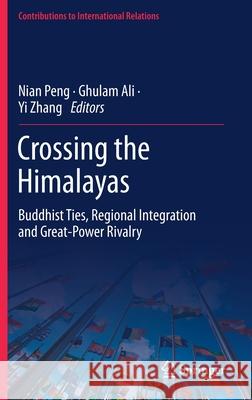Crossing the Himalayas: Buddhist Ties, Regional Integration and Great-Power Rivalry » książka
topmenu
Crossing the Himalayas: Buddhist Ties, Regional Integration and Great-Power Rivalry
ISBN-13: 9789811658075 / Angielski / Twarda / 2021 / 210 str.
Crossing the Himalayas: Buddhist Ties, Regional Integration and Great-Power Rivalry
ISBN-13: 9789811658075 / Angielski / Twarda / 2021 / 210 str.
cena 525,76
(netto: 500,72 VAT: 5%)
Najniższa cena z 30 dni: 501,19
(netto: 500,72 VAT: 5%)
Najniższa cena z 30 dni: 501,19
Termin realizacji zamówienia:
ok. 16-18 dni roboczych.
ok. 16-18 dni roboczych.
Darmowa dostawa!
Kategorie BISAC:
Wydawca:
Springer
Seria wydawnicza:
Język:
Angielski
ISBN-13:
9789811658075
Rok wydania:
2021
Wydanie:
2022
Numer serii:
001171820
Ilość stron:
210
Waga:
0.47 kg
Wymiary:
23.39 x 15.6 x 1.27
Oprawa:
Twarda
Wolumenów:
01
Dodatkowe informacje:
Wydanie ilustrowane











